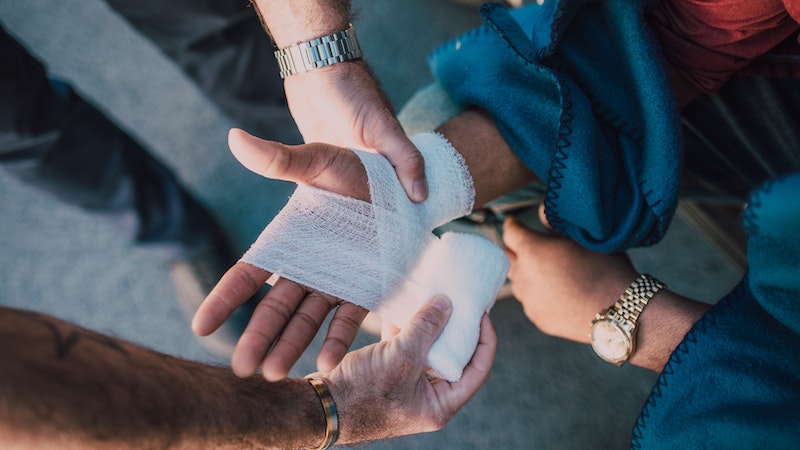What to do After a Personal Injury Incident
No one leaves home planning to suffer a personal injury while out and about, however, accidents do happen and when they do, we must be prepared to do everything it takes to fully recover.
There are many things one should do after a personal injury accident. Some of those steps should be taken as soon as the accident occurs e.g., gathering evidence; others may be taken a week or more later depending on how much injury the person has suffered from the accident e.g., compiling hospital bills, scans, and x-rays.

According to Rich Barnes, a personal injury attorney in Los Angeles, “since accidents are often unexpected, many people are completely at a loss of what to do when accidents happen.” Knowing what to do in such cases can save you from a lot of stress and financial loss.
What is a Personal Injury?
Any damage to a person caused by a deliberate act or an act of negligence is a personal injury. These injuries could be physical for instance, whiplash, a broken limb, or a brain injury. Personal injuries could also be psychological and emotional such as depression, anxiety, guilt, and anger.
When the liable parties in a personal injury accident are not willing to compensate the victims appropriately, personal injuries may be resolved in a personal injury lawsuit. Many people are likely to ignore the importance of seeking legal help in personal injury cases, however, there are countless reasons why men and women need a personal injury lawyer. If you’ve been involved in a personal injury, here are some crucial steps to take.
Ensure Your Safety
If you’ve been in a road traffic accident, for instance, check for serious injuries, such as blood, severe pain, and dizziness. If you or anyone shows these signs, then call emergency services as soon as possible. If you are unable to call, ask witnesses around to make the call for you. To prevent further harm from cars, get off the road and out of the vehicle.
Call 9-1-1. Even if you believe that your body is fine and there haven’t been serious injuries to your person, you should still call 9-1-1. Because oftentimes, the personal injury is more you think and just cannot be seen with the naked eye until you’ve been examined by a physician. Injuries that seem minor at first may end up costing thousands in hospital bills. Similarly, some injuries may seem harmless or minor, but they can be dangerous and life-threatening. Tissue damage, pain, and stiffness all become more significant as time goes by. Therefore, it’s better to get a medical check-up from an emergency responder.
Collect Evidence
Record information about first responders such as police officers that appear first. They can provide valuable information later on if you decide to file a lawsuit. Write down their names, addresses, incident numbers, and badge number.
Make sure the police file a report. This report contains the most important information, such as the location, time, day, weather, preliminary assessment of fault, and witness accounts. This will be a useful document later on. Ask the police if you can get a copy of the document.
Write down your account in full detail about everything. Include the location, all the people involved, time, situation, etc. If it’s possible, get any video or photo evidence, medical reports, and witness testimonies.
Notify Your Insurance
Let your insurance know about the personal injury incident; include details such as time, location, day, and everything. They will have to cover the initial medical bill, regardless of who’s at fault.
File a Claim with Other Party’s Insurance Company
Before you do it, make sure you understand the situation. You need to know whether the other party is liable for damages. And for that, it’s mandatory that you get a lawyer. Don’t proceed further if you don’t have one. If you’re certain, then make an initial claim. It should include the situation, your contact number, and your insurance contact.
The best way to get a response back from the insurance company is to submit a demand letter. This should include a completely factual account, evidence of the other party’s liability, proof that the accident affected you negatively, the fees you had to pay, and the demanded amount. The best way to make a demand letter is to get a personal injury lawyer.
File a Personal Injury Lawsuit
File your complaint. Remember, that statute of limitations applies to injury lawsuits, so you have a stipulated time within which you could file a complaint. Each state has a different stipulated time, so it’s best to work quickly.



